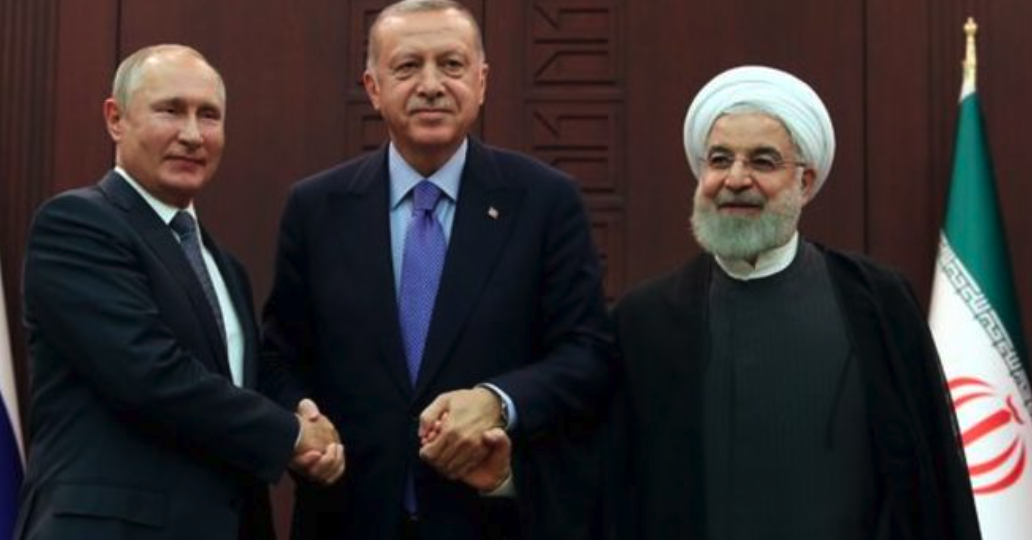Foreign Minister Mevlut Cavusoglu acknowledged difficulties so far but called on Iran to make constructive contribution to the high-level talks between Turkey, Syria and Russia. Ezgi Akın reports in Al-Monitor on April 13, 2023.
Turkish Foreign Minister Mevlut Cavusoglu on Thursday tacitly acknowledged the difficulty of including Iran in high-level talks between the Turkish and Syrian governments.
Asked whether Iran played a destructive or constructive role, Cavusoglu chuckled and said he couldn’t describe Tehran’s role as destructive so far. “But of course it has been a Russian initiative. From now on, the contribution that Iran will make will be important,” he told Turkey’s private HaberTurk television in an exclusive interview.
Cavusoglu added that the Iranian demand to join the talks between Ankara, Damascus and Moscow was one reason a landmark meeting between the three countries’ top diplomats was cancelled in mid-January.
Following a Moscow-mediated meeting between the Turkish, Russian and Syrian defense and intelligence chiefs late last year, the chief diplomats of the three countries were expected to gather as part of the Kremlin’s efforts to reconcile Ankara and Damascus.
“Iran said it wanted to be included [in the talks] as well. … They came to us, they went to Russia. We said, ‘Okay let’s include Iran as well,’” Cavusoglu said.
Turkey supports Sunni armed rebel groups fighting to oust the Syrian government, while Russia and Iran are the major backers of Syrian President Bashar al-Assad.
Al-Monitor reported earlier this month that the high-level meetings were canceled over Tehran’s objections to the involvement of the United Arab Emirates, which has played a facilitator role in talks between Ankara and Damascus,
Speaking on Thursday, Cavusoglu said that the foreign ministers of Russia, Iran, Turkey and Syria are now expected to hold a meeting in early May.
Damascus has been dragging its feet, pressing for a concrete commitment from Ankara to withdraw its military presence from the country’s north.
Cavusoglu said that this can only be achieved “as a result of a road map.” He listed his country’s objectives from the high-level talks as political reconciliation between the armed opposition groups and Damascus; cooperation against the Syrian Kurdish groups controlling northeast Syria; and the safe and voluntary return of some 4 million Syrian refugees living in Turkey.
Syrian refugees in Turkey remain one of the top concerns of the Turkish public ahead of critical May 14 elections. The Feb. 6 twin earthquakes that killed more than 50,000 people in the country’s south have further fueled the anti-refugee sentiment.
Ankara also seeks Damascus’ cooperation on its fight against the US-allied Syrian Democratic Forces (SDF), which it deems a terrorist organization. Its efforts to convince Washington to end its support to the group have largely failed so far. Turkey equates the Kurdish-led SDF with the outlawed Kurdistan Workers Party (PKK) which has been fighting the Turkish state for self-rule inside Turkey for the past four decades. While Washington and several other Western capitals consider the PKK a terror group, the SDF remains the major ally of the US-led international coalition against the Islamic State. Some of the SDF commanders hail from the PKK cadres.

